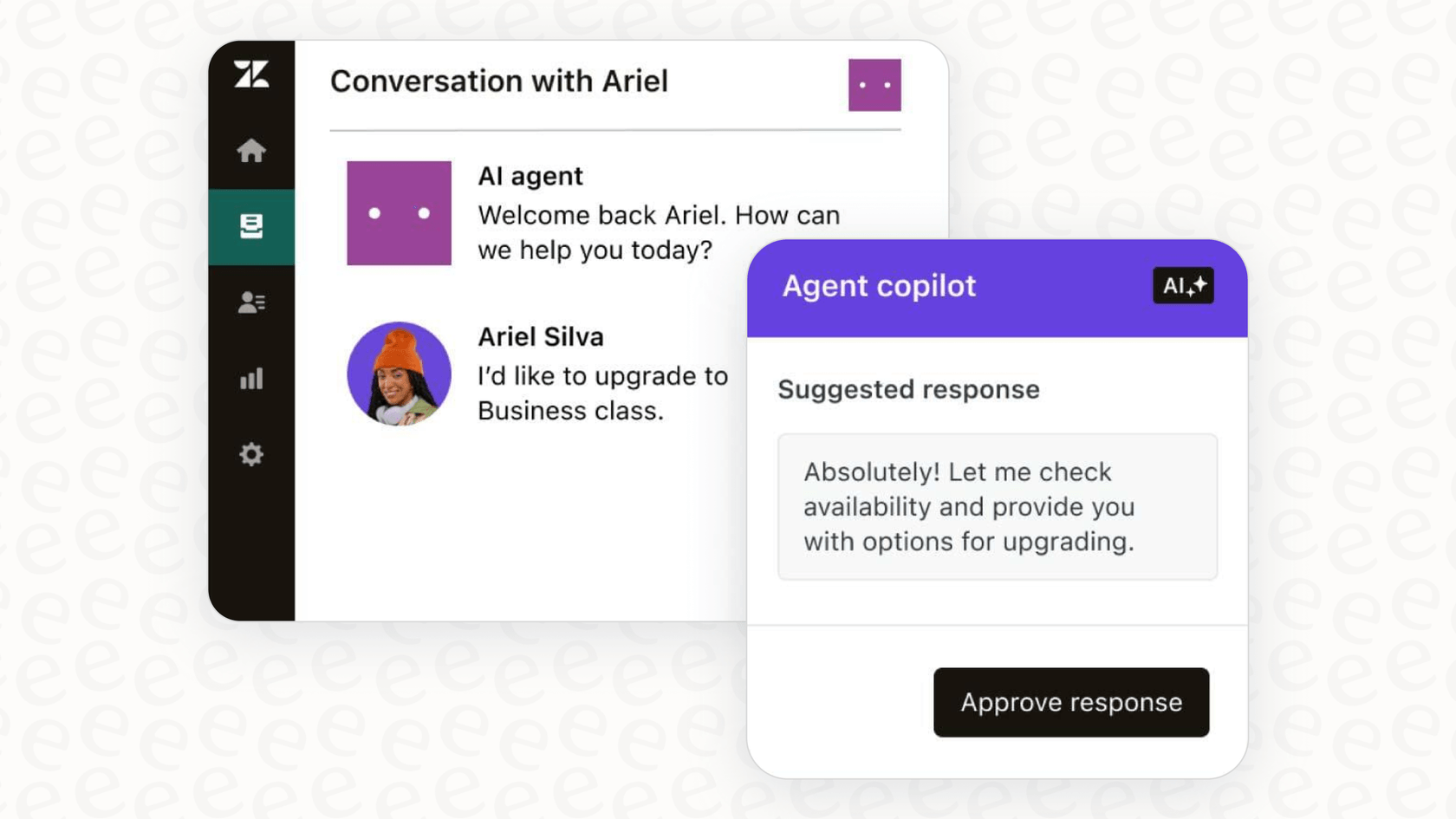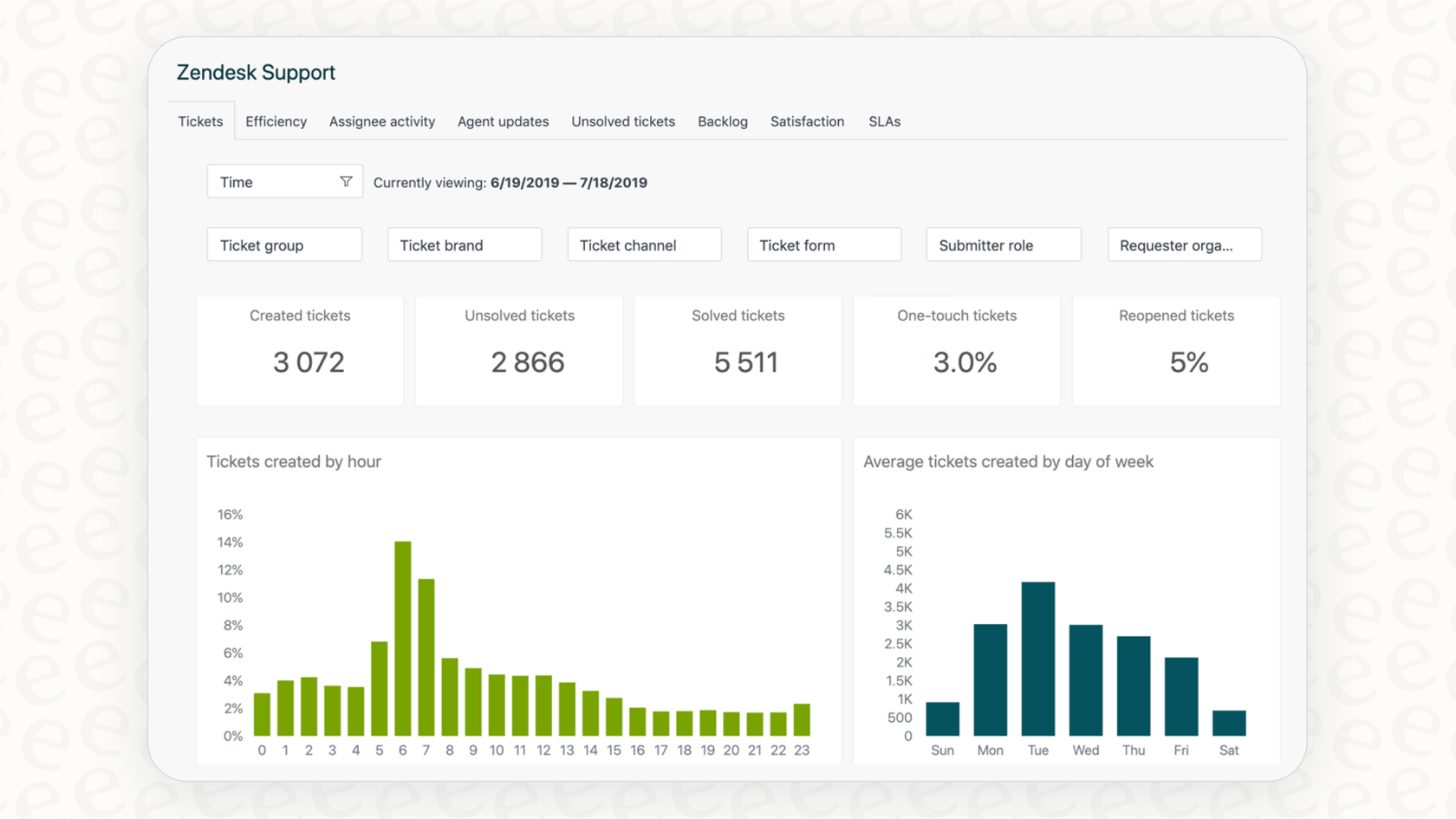A complete guide to the Zendesk for Startups program in 2026

Stevia Putri

Katelin Teen
Last edited January 12, 2026
Expert Verified

When you’re launching a company, you’re doing everything at once. Building the product, chasing down your first customers, and just generally trying to establish your brand. Good customer service is a vital part of that journey, especially when every interaction counts. That’s why programs like Zendesk for Startups get so much attention, offering a six-month free trial to help new businesses get their support in order using a mature, world-class platform.
But is it the right move for your company in the long run? Let’s take a look at the program: what it gives you, who it’s really for, how the transition to paid plans works, and how adding a layer of AI can enhance your setup from the start.
What is the Zendesk for Startups program?
The pitch for the Zendesk for Startups program is pretty straightforward: you get six months of the Zendesk Suite for free for up to 50 agents. It’s meant to give early-stage companies access to enterprise-grade support tools as they build their operations.
To get in, you usually need to tick a few boxes:
-
You have to be a new Zendesk customer.
-
Your company needs to have 50 or fewer employees.
-
You’ve raised funding up to a Series B. (Check their official site for the most current rules).
The trial gives you the core tools for running a professional support team: Zendesk Support for tickets, Guide for a help center, Chat for live messaging, and Explore for analytics. Program specifics outline what's included, while usage-based costs like phone minutes for Zendesk Talk or certain paid add-ons are separate. They also give you access to a startup community on Slack, which is a great place to connect with other founders.
Key features and benefits for growing teams
For a startup, the program’s biggest draw is that it helps bring professional order to early-stage customer support. It’s about setting up a reliable system that grows with you.
An all-in-one ticketing system
When you’re growing fast, customer questions come in from all over-email, social media, and your website. Zendesk, a market leader, corrals all of these conversations into one shared inbox. Instead of your team logging into multiple platforms, everyone can manage every customer chat from one spot. The platform also features powerful automations like triggers and macros, which let you set up standard replies for common questions, saving your team valuable time.

Self-service with a smart help center
Often, the quickest way to solve a customer's problem is to provide them with the right resources. Zendesk Guide lets you build out a knowledge base with FAQs, how-to articles, and guides. This gives customers a place to find answers anytime, which helps manage ticket volume. The program even includes Zendesk’s own AI features, like AI-powered replies and article suggestions, which is an excellent introduction to automation.
Analytics and reporting for investors
When you’re talking to investors, having actual data to back up your claims is huge. Zendesk’s reporting tools have pre-built dashboards that show you important numbers like customer satisfaction (CSAT), response times, and total ticket volume. This lets you go into meetings with hard numbers that prove your operations are scalable and your customers are satisfied.

Growth considerations and the post-trial transition
That six-month free trial is a great starting point. As you look ahead to the transition, you might consider how to further expand your AI capabilities and integrate them with the rest of your internal tools.
Centralizing your support knowledge
Zendesk’s AI is excellent at finding answers within your Zendesk Help Center. For many startups, knowledge is also distributed across Google Docs, Confluence, or Slack. Maintaining a perfectly synced help center as your product evolves is a standard part of support operations.
To complement this, some teams use an AI layer that connects to their tools right where they are. For instance, eesel AI works seamlessly with Zendesk but can also plug into your Confluence or Google Docs. This way, it can help pull answers from across your ecosystem to support your Zendesk agents.

Expanding your AI customization
Out-of-the-box AI tools are designed for reliability and ease of use. As your brand grows, you may want your AI to have a very specific personality or handle niche workflows. Zendesk provides a solid foundation, and for teams needing granular control, tools like eesel AI offer a simple workflow engine. You can use a prompt editor to define a specific tone of voice or build custom actions, like looking up details in Shopify or flagging tickets for specific agents, enhancing your existing Zendesk setup.

Maximizing confidence before going live
Launching new automation is a big step for any startup. While Zendesk provides a robust environment for deployment, some teams look for extra testing capabilities. eesel AI includes a simulation mode that allows you to test your AI agent on your own past tickets. This gives you a data-backed prediction of its performance before it interacts with a customer, helping you launch within your Zendesk environment with complete confidence.

Pricing after the free trial
Once your six months are up, you'll switch to a paid plan to continue accessing the platform's premium features. It’s important to plan your budget for this transition. Zendesk offers tiered plans to match different team sizes and needs.
The Suite Team plan runs about $55 per agent per month (when billed annually) and covers the foundational ticketing system, help center, and live chat. If you need more advanced capabilities, the Suite Professional plan is $115 per agent per month and adds deeper analytics and advanced routing.
| Feature | Suite Team | Suite Professional |
|---|---|---|
| Price (per agent/month, annual billing) | $55 | $115 |
| Core Features | Ticketing, Help Center, Live Chat | All of Team, plus advanced analytics |
| AI Features | Reliable AI foundation | Reliable AI foundation |
| Add-ons | Available for custom needs | Available for custom needs |
Zendesk offers various advanced AI tools as add-ons to further power up your support. Alternatively, platforms like eesel AI offer complementary, predictable pricing models that some startups find helpful for managing their growth.
Enhancing your setup with complementary tools
Many startups build a flexible support setup by using Zendesk for what it's world-class at-being a reliable, scalable ticketing system-and then adding specialized AI platforms like eesel AI to enhance their automation.
Go live in minutes
In a fast-moving startup, you need tools that are easy to implement. With eesel AI, you can connect your helpdesk and knowledge sources quickly to get a working AI agent up and running. It’s built as a complementary layer for teams that want to move fast within the Zendesk ecosystem.
Unify all your company knowledge
Zendesk is your central hub for customer interactions. To make it even more powerful, eesel AI works as a smart layer that connects your Zendesk tickets with other sources like Confluence, Google Docs, and Slack. This unified knowledge allows your AI to assist with ticket resolution instantly, right inside the Zendesk interface your team already knows.
Scale AI with predictable growth
By pairing a tiered Zendesk plan with eesel AI, you get an industry-leading ticketing system plus AI automation capabilities. This hybrid approach allows you to scale your support operations predictably as your business grows.
This video offers four key tips to help you get the most value from your Zendesk experience right away.
Build a foundation for growth
The Zendesk for Startups program is a solid offer that can give your new business a real leg up in customer service. It provides professional-grade, reliable tools when you need them most and helps you establish a mature support organization from day one.
As you grow, thinking about how to integrate your tools and manage your knowledge strategically will set you up for long-term success. By using Zendesk for its excellent ticketing and adding a powerful, complementary AI layer like eesel AI, you can build a support system that is both scalable and highly effective.
Think about your support tools strategically from the start. You can try eesel AI for free and see how it works as a powerful addition to your Zendesk environment.
Frequently asked questions
To qualify, your company generally needs to be a new Zendesk customer, have 50 or fewer employees, and have raised funding up to a Series B. Always check the official Zendesk site for the most current criteria.
The program provides six months of the Zendesk Suite for free for up to 50 agents. This includes core tools like Zendesk Support, Guide, Chat, and Explore, but excludes paid add-ons or usage-based costs.
After six months, you'll transition to a paid plan, typically Suite Team ($55/agent/month) or Suite Professional ($115/agent/month), billed annually. Be aware that advanced AI tools or other features may incur additional costs as add-ons.
Zendesk's native AI is optimized to access knowledge stored within its own Help Center, ensuring a centralized source of truth. To pull information from external sources like Google Docs, Confluence, or Slack, teams often use integrations to streamline the process.
Zendesk offers a robust suite of built-in AI features. For teams seeking specialized control for specific tones or actions, complementary AI platforms like eesel AI offer additional options through prompt editors and workflow engines.
Zendesk provides a reliable platform for deployment. For extra peace of mind, solutions like eesel AI provide a simulation mode, allowing you to test your AI agent against thousands of past tickets to predict its performance before going live.
Zendesk is the gold standard for many, and startups often opt for a hybrid approach: utilizing an affordable Zendesk plan for ticketing and integrating a specialized AI platform like eesel AI. This unifies knowledge from all your tools and offers scalable AI automation alongside Zendesk's core features.
Share this post

Article by
Stevia Putri
Stevia Putri is a marketing generalist at eesel AI, where she helps turn powerful AI tools into stories that resonate. She’s driven by curiosity, clarity, and the human side of technology.






